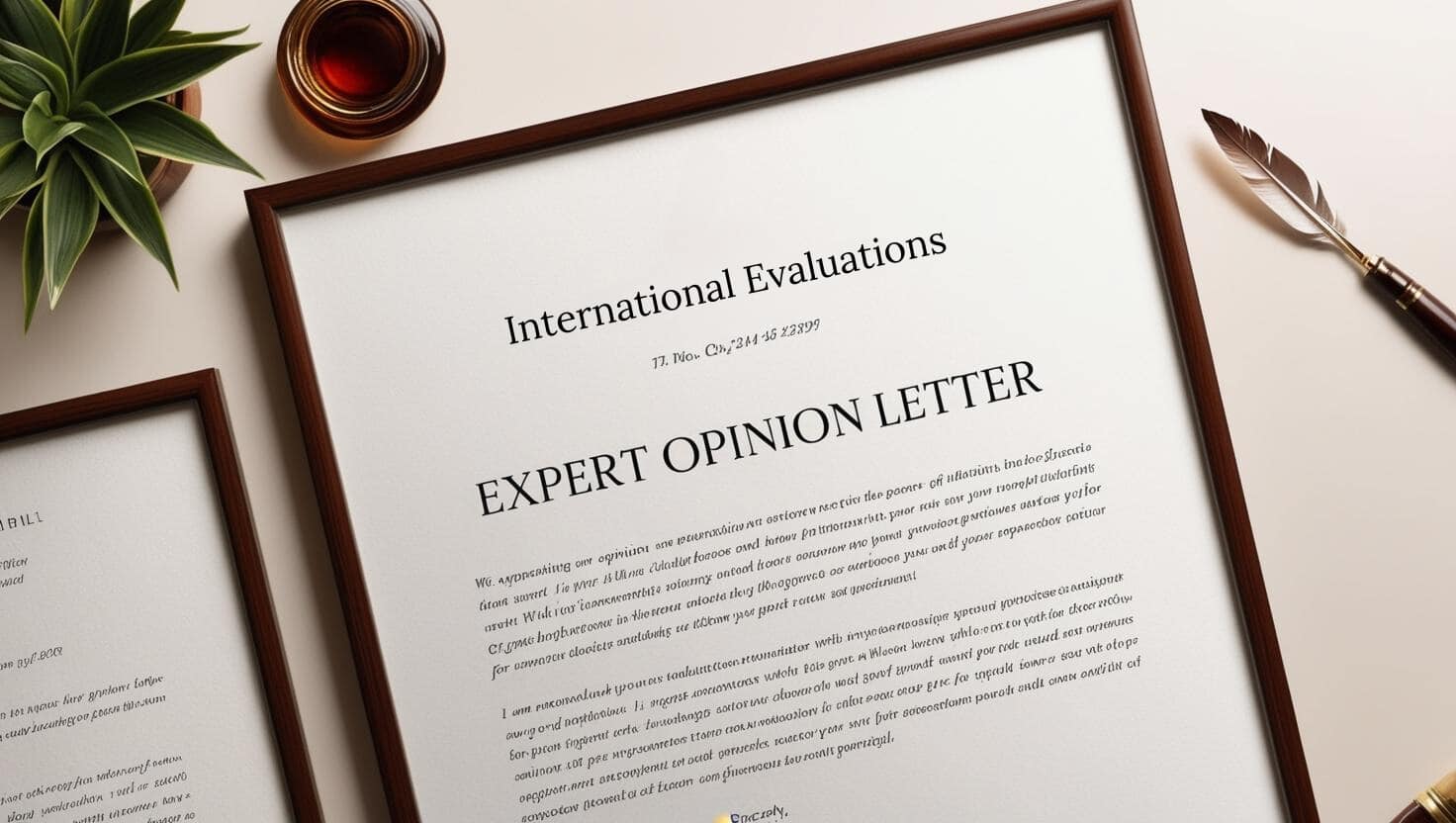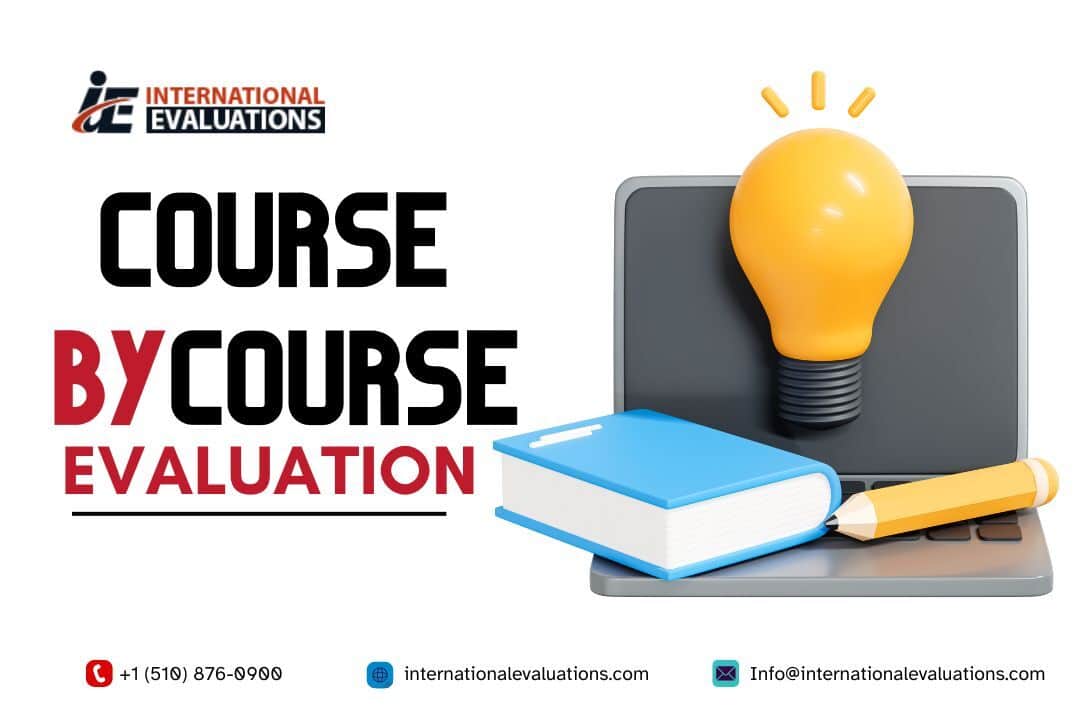Introduction
In an increasingly interconnected world, the movement of individuals throughout borders for education and work has actually ended up being an essential aspect of international movement. As people look for opportunities abroad, whether for higher education, career development, or global acknowledgment of their credentials, understanding the procedure of academic credential evaluation is paramount. This guide aims to provide you with detailed insights into the typically intricate and nuanced world of academic credential assessment, ensuring that your certifications are acknowledged and valued anywhere you go.
The Vital Guide to Academic Credential Evaluation for Global Mobility
Academic credential examination works as a bridge between varied academic systems and standards worldwide. It evaluates and equates educational qualifications acquired in one country so they can be understood in another context. This guide will walk you through various elements of this procedure, including understanding various types of assessments, selecting reliable global credential evaluation services, and browsing the specific requirements for numerous countries.
What is Academic Credential Evaluation?
Academic credential assessment is an organized procedure that includes examining foreign instructional qualifications to identify their equivalency in another country's education system. This assessment can incorporate various types of documents, consisting of diplomas, records, certificates, and even expert training records.
Why is Academic Credential Examination Important?
Employment Opportunities: Lots of companies require evidence that a prospect's instructional background satisfies local or international standards. Further Education: Universities often mandate assessments to guarantee candidates meet their admission criteria. Visa Applications: Nations might require assessments as part of migration processes. Professional Licensing: Certain occupations demand verified credentials for licensure.Types of Academic Credential Evaluations
Understanding the different types of examinations can assist you choose the best course forward based on your needs.
Course-by-Course Credential Evaluation
This type uses a detailed analysis of each course finished during your research studies in addition to grades received. It's particularly helpful for students looking to transfer credits or apply to finish programs.
Document-by-Document Evaluation
A more basic approach that provides an overview of your overall educational achievement without delving into private course details. This is usually sufficient for work verification or visa applications.
Work Experience Evaluation
For individuals without formal degrees but with considerable expert experience in their field, work experience examinations evaluate relevant skills and knowledge gained through work. Such evaluations can support applications in lieu of standard academic credentials.
Choosing International Credential Assessment Services
Selecting a dependable evaluation service is crucial to guarantee appropriate evaluation and recognition:
Accreditation: Search for companies recognized by authoritative bodies such as NACES (National Association of Credential Evaluation Solutions) or AICE (Association of International Credential Evaluators).
Reputation: Research reviews and testimonials from previous clients.

Specialization: Some services focus on specific areas or fields; guarantee they align with your requirements.

Turnaround Time: Bear in mind processing times as this can impact application deadlines.
Cost: Evaluate rates structures carefully; while more affordable alternatives might seem appealing, quality must not be compromised.
The Process of Academic Credential Evaluation
Navigating the credential examination process includes numerous key steps:
Gather Required Documents: Gather all needed paperwork including transcripts, diplomas, curricula, etc.
Select an Examination Service: Choose appropriately based upon your requirements laid out above.
Complete Application Form: Complete any required types provided by the assessment service.

Payment: Submit payment according to the service's policies.
Submit Documents: Send your documents either by mail or digitally as instructed.
Receive Your Report: When examined, you'll receive a report detailing how your qualifications compare internationally.
Common Locations Covered in Evaluations
Here are some key components generally evaluated throughout scholastic credential assessments:
- Course content Credit hours Grades achieved Degree classifications
Understanding Different Educational Systems Worldwide
To better navigate academic credential assessments, it's important to understand how educational systems vary internationally:
North America (U.S.A & Canada)
- Higher education normally consists of Associate's Degrees (2 years), Bachelor's Degrees (4 years), Master's Degrees (1-2 years), and Doctorate Degrees (3-7 years).
Europe
- The Bologna Process standardizes degree levels across Europe into 3 cycles-- Bachelor's (3 years), Master's (1-2 years), and Doctorate (3+ years).
Asia
- Diverse systems exist; numerous nations have actually moved towards Western-style designs while others maintain special structures rooted in tradition.
Importance of Professional Opinion Letters in Evaluations
An expert opinion letter can substantially https://blogfreely.net/entineaity/your-guide-to-academic-credential-evaluation-for-international-students enhance your assessment's reliability by offering additional context regarding your qualifications from industry experts or teachers familiar with both academic systems involved.
Business Plan Examinations and Their Relevance
In some scenarios-- for instance when requesting investment visas-- company plan evaluations may likewise be necessary together with academic credential evaluations to display company acumen backed by documented expertise.
Special Considerations When Evaluating Non-Traditional Education Paths
Individuals who have pursued non-traditional education paths such as online degrees or professional training may deal with distinct challenges during evaluations:
Ensure paperwork properly shows coursework completed.
Be prepared to promote for acknowledgment based on skill set instead of traditional degree structures.
Challenges Dealt with Throughout Credential Evaluations
Despite improvements in globalization efforts surrounding education systems, challenges remain widespread:
- Inconsistent paperwork practices throughout institutions worldwide. Language barriers complicating translations required for accurate assessments.
Tips for Success in Academic Credential Evaluations
Stay organized-- develop a checklist!
Communicate openly with evaluators about any unique circumstances connected to your education history.
Be patient-- the procedure may take time however will ultimately yield valuable results!
FAQs About Academic Credential Evaluations
Q1: The length of time does the examination procedure take?
A1: Processing times vary by company but usually range from a few weeks as much as several months depending on complexity and current workload.
Q2: What if my qualifications are not acknowledged? **
A2: If evaluated credentials do not satisfy local standards, think about additional coursework or alternative paths such as work experience assessments which might supply validation through useful knowledge instead!
Q3: Can I appeal an undesirable assessment outcome? **
A3: Yes! The majority of credible services use an appeals procedure where you can send more documentation or clarification regarding disparities kept in mind throughout preliminary assessments.
Q4: Exist specific files required for a course-by-course evaluation? **
A4: Yes! Records detailing courses brought with grades received are important parts required; in some cases syllabi may also be requested depending on the organization involved!
Q5: Is it essential to send initial files? **
A5: Typically no-- most services accept copies unless defined otherwise; nevertheless! Constantly validate each service's document submission requirements beforehand!
Q6: Just how much does a scholastic credential assessment cost? **
A6: Costs vary extensively based on factors like location/type/complexity varying anywhere from $100-$500+. Constantly examine in advance rates before deciding!
Conclusion
In summary, navigating the landscape of academic credential assessment is vital for anybody thinking about pursuing opportunities abroad-- whether aiming for educational advancement or career development within global markets! By comprehending various types readily available alongside techniques used throughout this journey-- from choosing trustworthy services through documenting experiences-- you'll find yourself well-equipped navigate complexities connected with confirming qualifications across borders! The Important Guide to Academic Credential Assessment for Global Movement acts as both a roadmap guiding people toward successful shifts while empowering them leverage their distinct backgrounds within diverse environments globally!